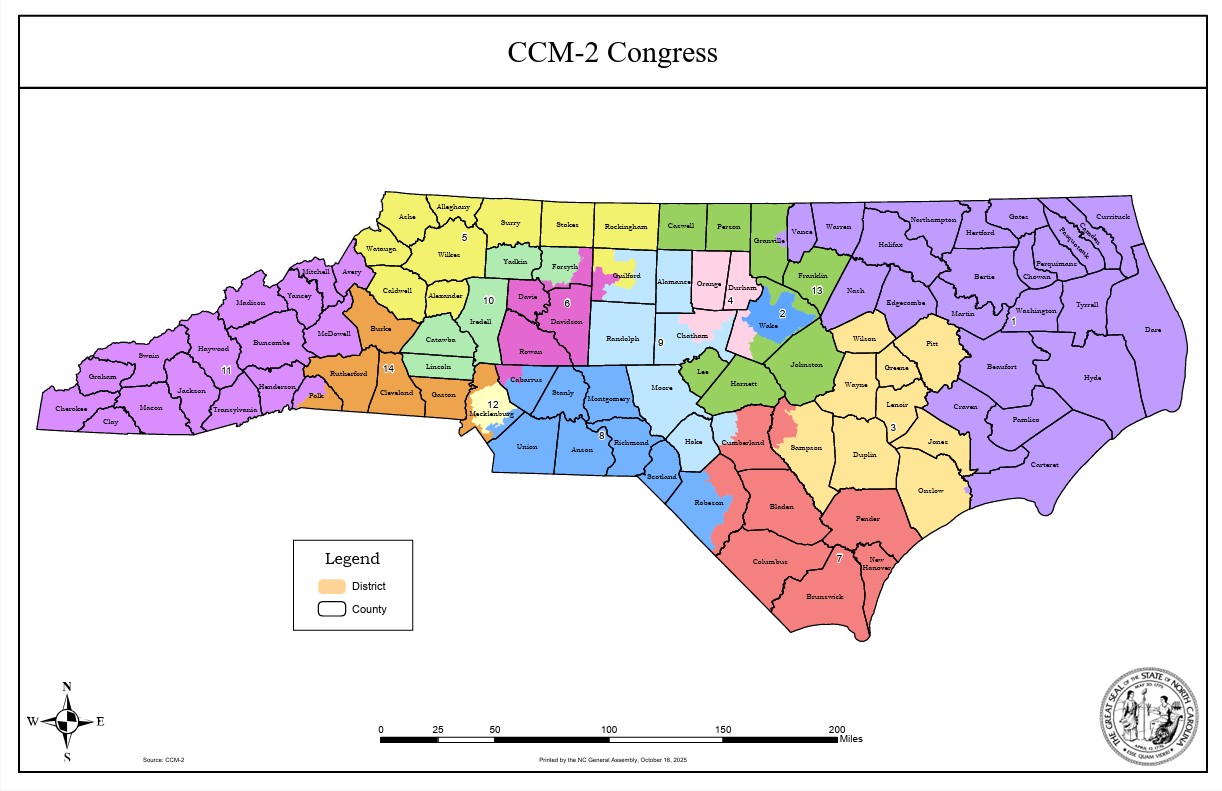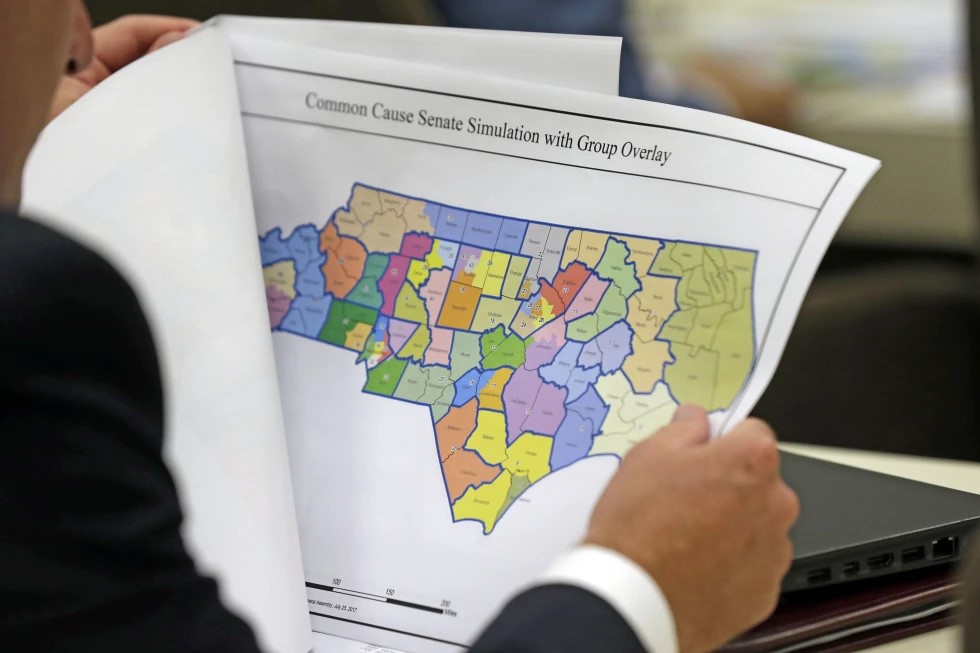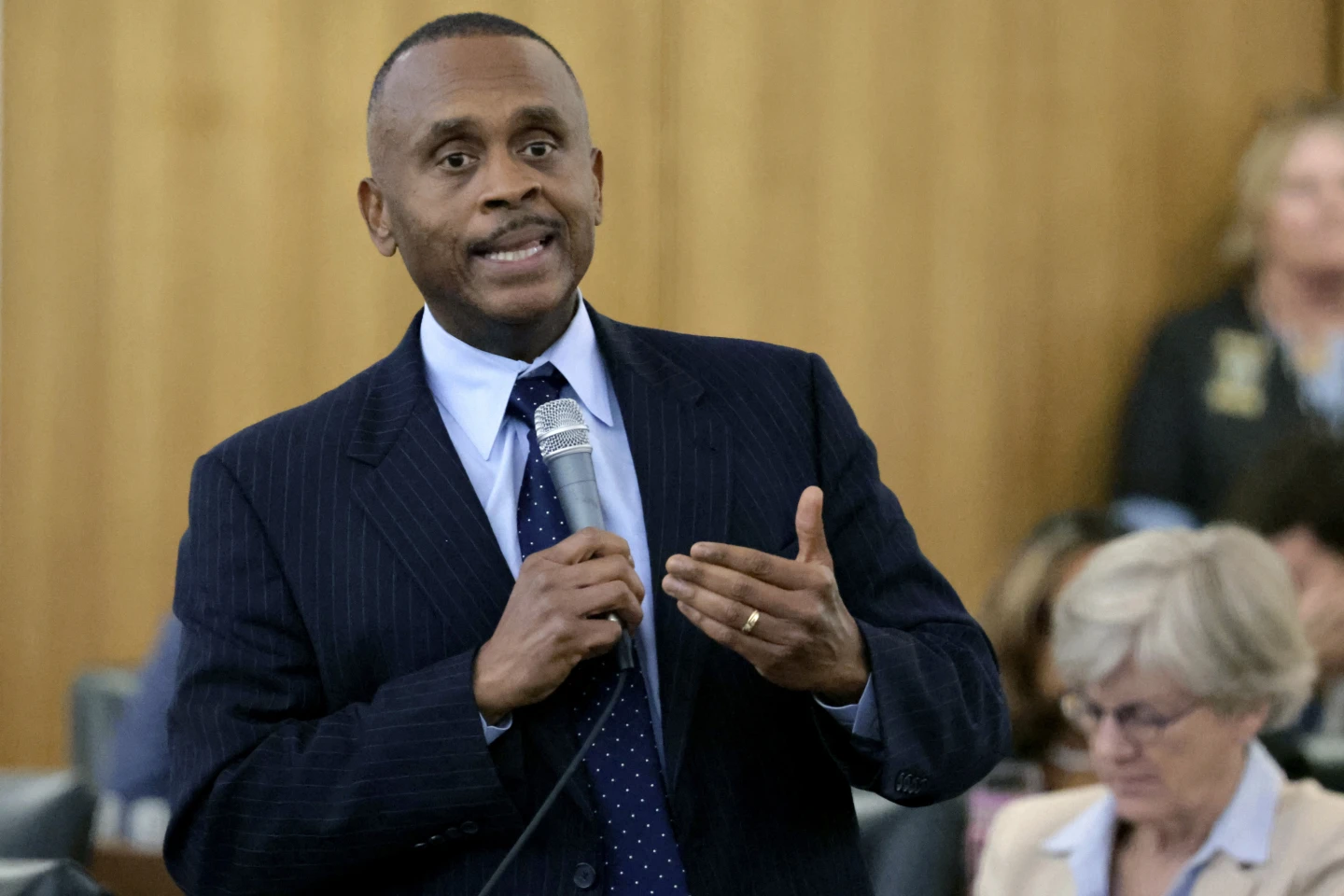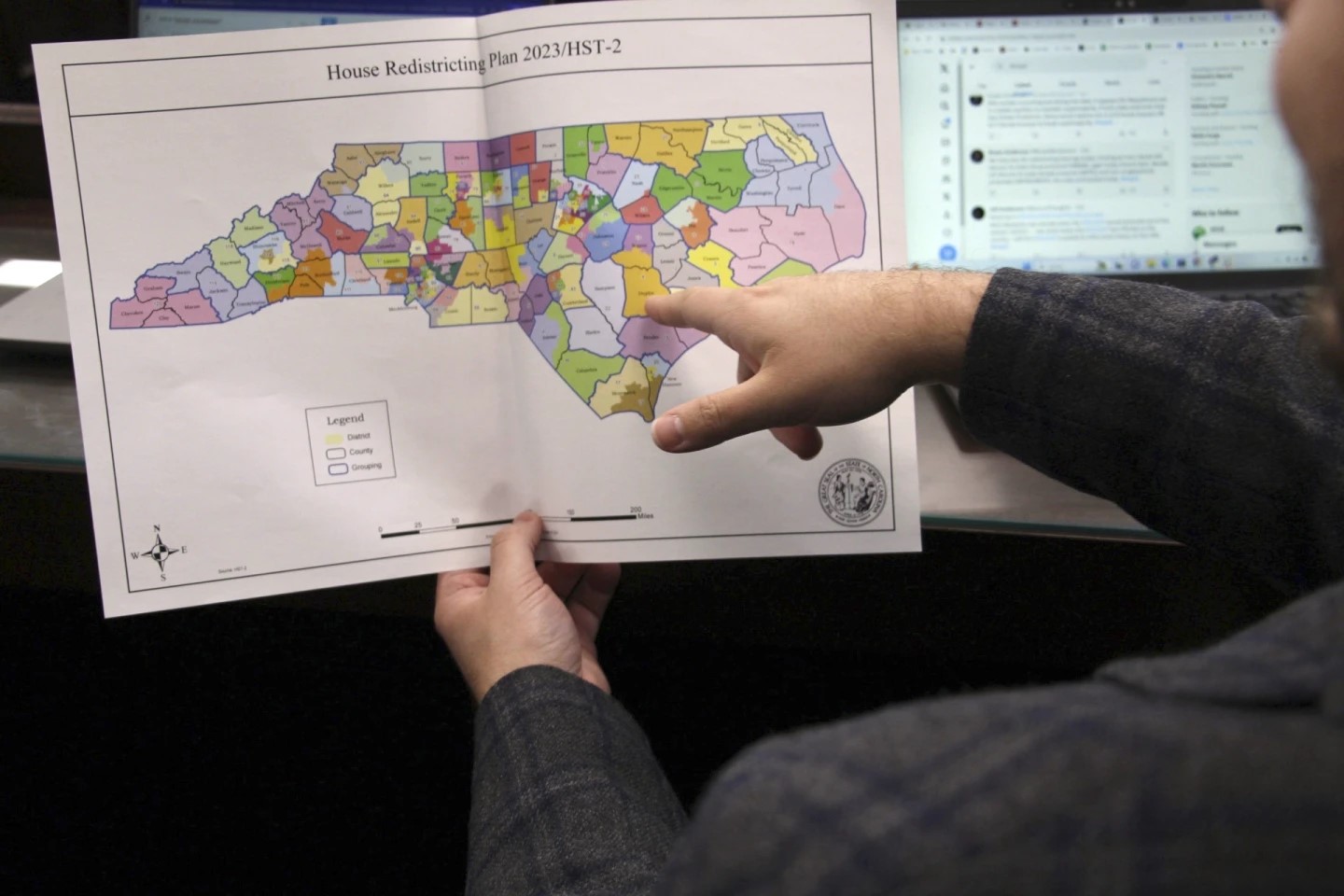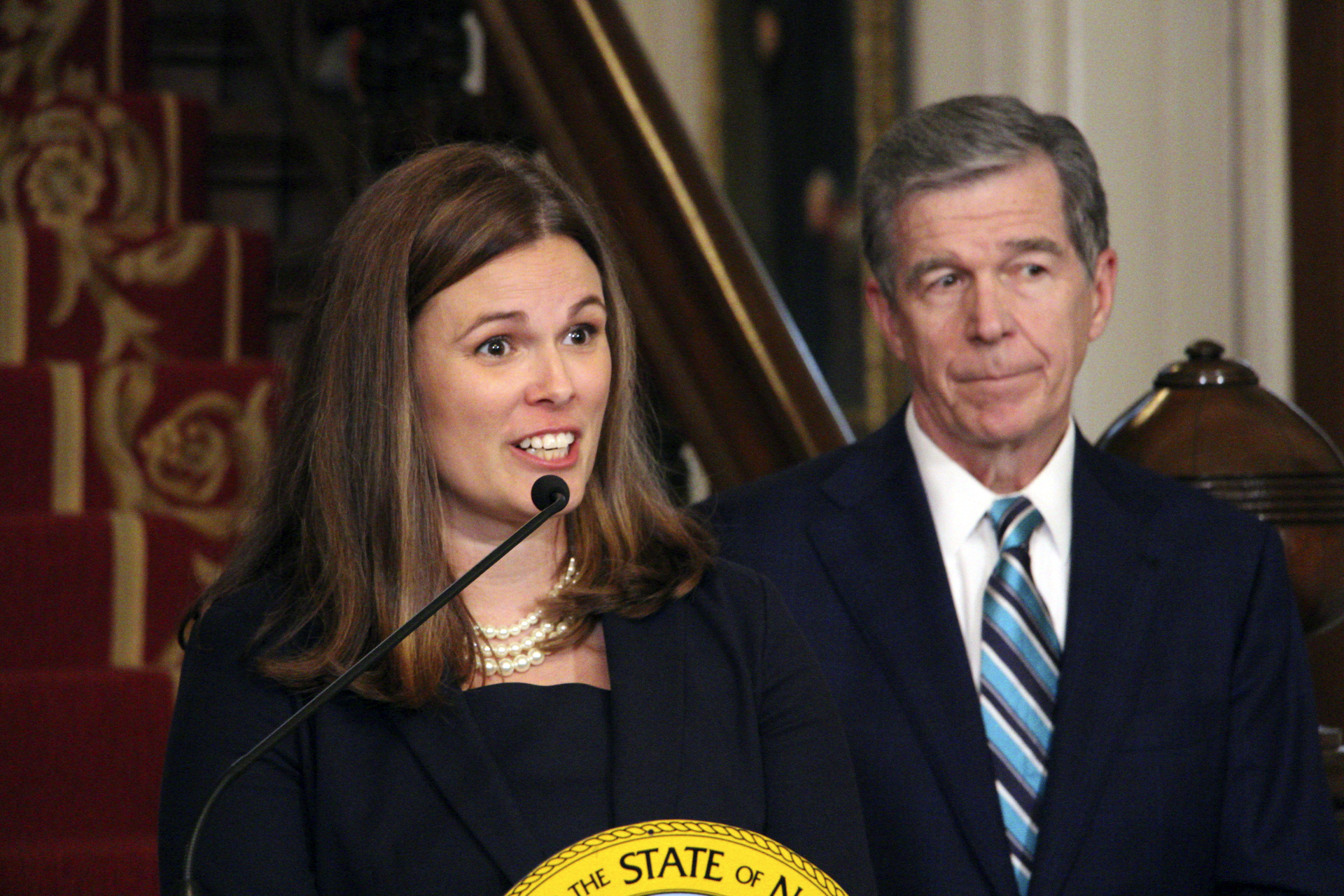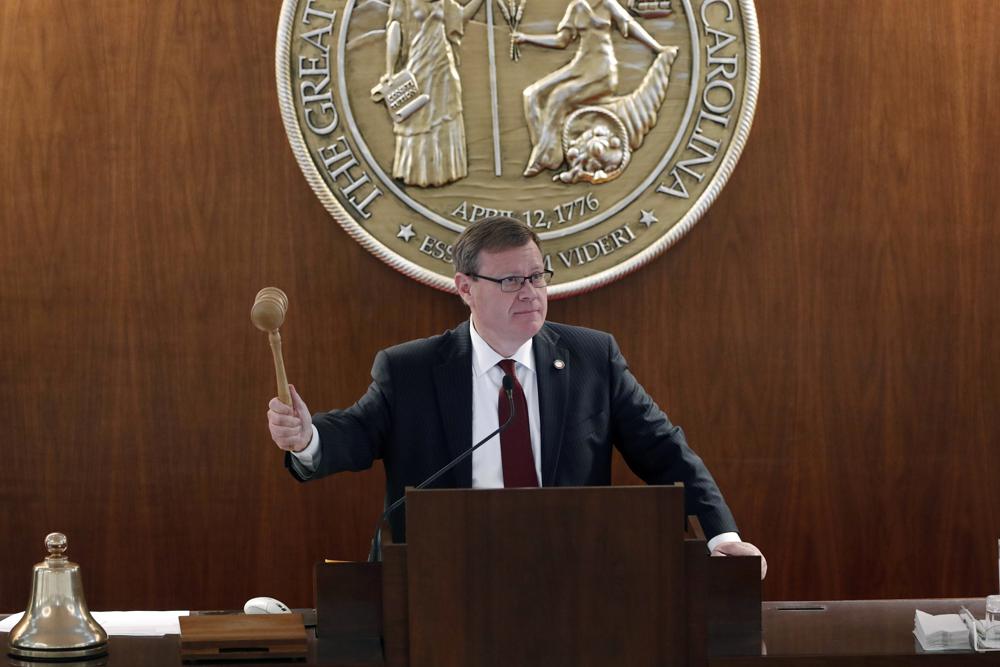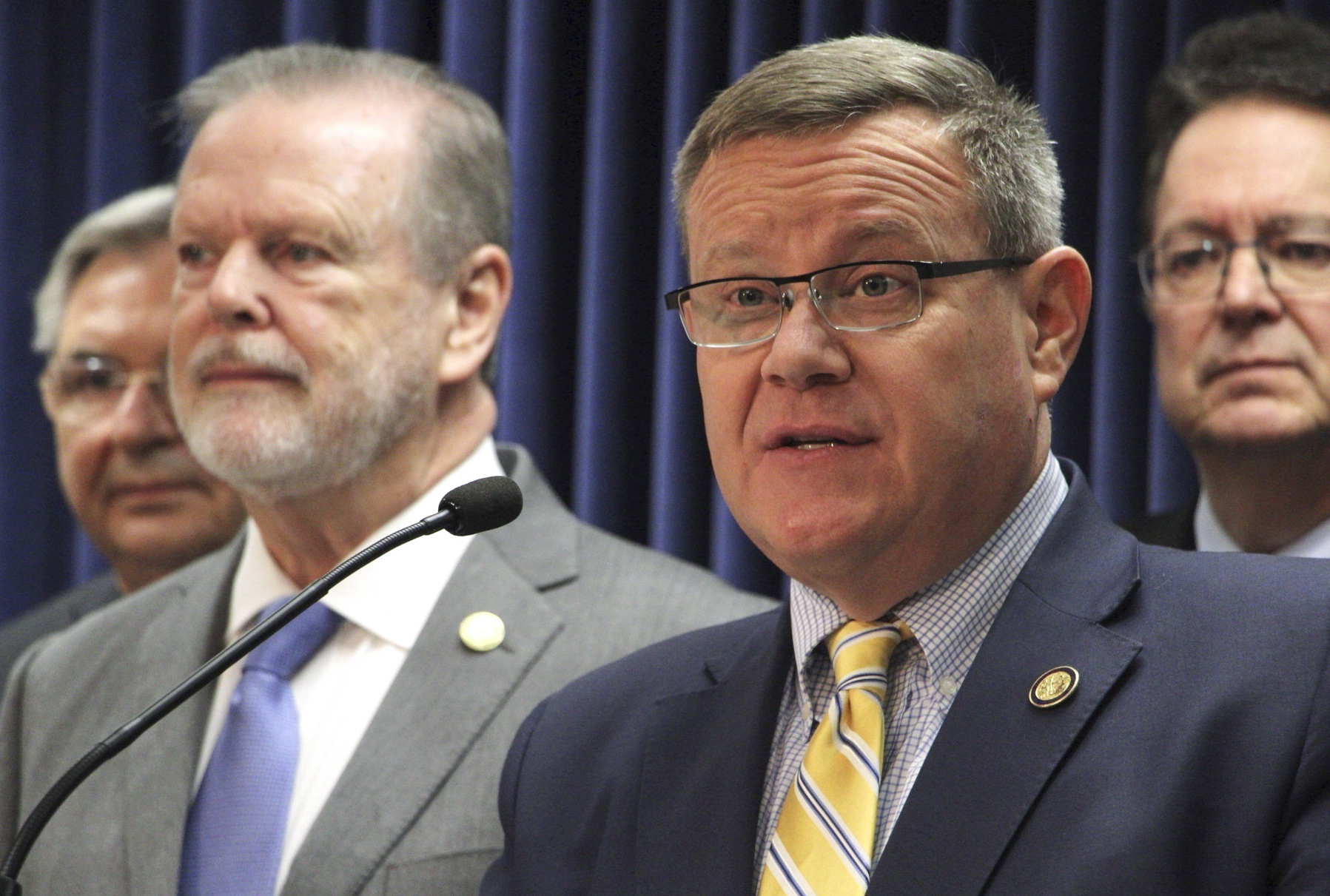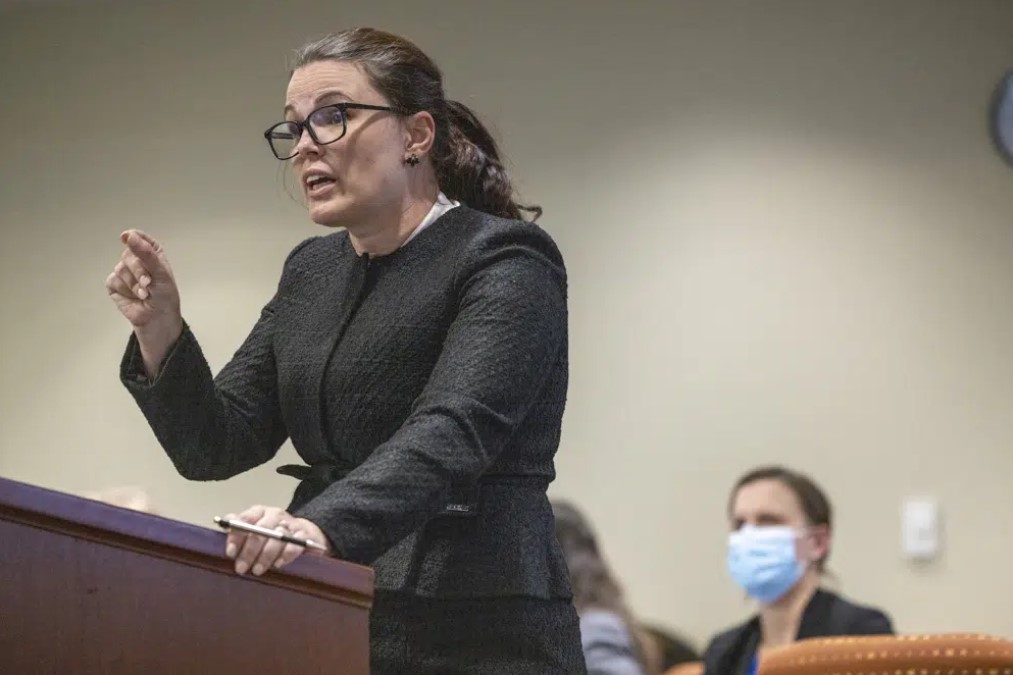A plan for redistricting in North Carolina is once again being put forward by state lawmakers.
A bipartisan group of legislators, from the House and Senate, held a press conference at noon on Tuesday. The purpose was to put forward a proposal to change how voting maps are drawn in the Tar Heel state.
The debate over redistricting in North Carolina has raged on for more than a century. For years Democrats controlled the state legislature, and they drew maps that were favorable to the election of more Democrats. And that was deemed legal by the court system.
During that time, Republicans, and some Democrats, repeatedly called for lawmakers to conceive of a more fair system for how the maps are drawn. Now that Republicans are in control of the state House and Senate, the roles have reversed.
But long-time Republican House Representative Skip Stam says he will introduce a bill that calls for an independent commission to draw the voting maps in the state.
“The idea is that, in constructing districts, the people with the most at stake,” he says, “are probably ones who shouldn’t be doing the details.”
Stam’s proposal would be enacted before the next maps are drawn in 2021.
Stam says an opportunity has presented itself that may be the best chance for the bill to actually pass into law, because there is no pending litigation regarding the current maps.
Republican Representative Charlie Jeter says he and Democratic Senator Jeff Jackson will also be introducing a bill concerning redistricting.
“Our bill won’t go into effect until after the 2030 election cycle, in large part because it grandfathers everyone out,” he says. “To some degree, I think this is about getting the bill passed.”
Democratic Representative Grier Martin says his district, because it is heavily Democratic, is a prime example of what is causing some voters to stay home from the polls.
Martin adds passing a bipartisan redistricting bill would be a big step toward restoring North Carolinians faith in the state government.
Republican Representative John Hardister echoes the sentiment of many conservative leaders at the press conference, saying gerrymandering districts is bad policy – regardless of which party benefits.
“Many Republicans, including myself, advocated for redistricting reform when Democrats were in the majority,” he says. “It was the right thing to do then, and it’s still the right thing to do today.”
John Hood, with the conservative Pope Foundation, says the policy should move forward because it benefits the residents of North Carolina.
“It’s important for all of us in North Carolina to get the policy right,” he says. “I’m sure that redistricting reformers would welcome additional alternatives; as long as they were consistent with the principal that neutral rules should be our tactic, and competitive elections should be our end.”
Voters were the topic of conversation as well for Chris Fitzsimon of the progressive organization NC Policy Watch.
“This is not all the complicated,” he says. “The idea is to create a system where voters choose their politicians, instead of the other way around.”
Even with the bipartisan backing of this bill, it is not set in stone that it will move forward. Republican Senate President Pro Tem Phil Berger has previously said he would not consider the legislation while litigation was ongoing.
Mitch Kokai is the Director of Communication for the conservative John Locke Foundation, and he says – even though the litigation has reached a conclusion – there is no guarantee Senator Berger will bring the legislation before the Senate, regardless of what the House does.
“[Berger] hasn’t come out and said ‘heck no, we’re never going to do it,’” Kokai says. “But he also hasn’t come out and said ‘oh yes, we’re going to go along with this now.’”
Ellie Kinnaird represented Orange and Chatham Counties in the North Carolina Senate, as a Democrat, from 1997 – 2013, and she recalls trying to pass a redistricting campaign when her fellow Democrats were in control of the House and Senate.
“I introduced a bill, under the Democrats, for an independent redistricting campaign,” she says. “They thought they were going to be in power forever, why would they do it? I introduced it under the Republicans, and the same thing happened.
“So, I’m very encouraged that the House, last term, actually did pass an independent redistricting bill. But I’m afraid that Mr. Berger will never relent in the Senate. He will not let that go through.”
Kinnaird adds, as long as large donors are allowed to bring about campaigns similar to what North Carolinians saw with the US Senate race between Thom Tillis and Kay Hagan, she is not expecting anything to change.
“The money is going to be crucial,” she says. “As the money pours in, it just solidifies the system.
“I don’t see any hope for the near future for North Carolina. I think that, frankly, it’s going to take 49 states enacting it before we enact it.”
The next North Carolina voting maps will be drawn in 2021, following the 2020 census. Whether they will be drawn with a partisan pen or through the eyes of an independent committee remains to be seen.
WCHL has requested a statement from Senator Phil Berger following the press conference but have not received a response at this time.

